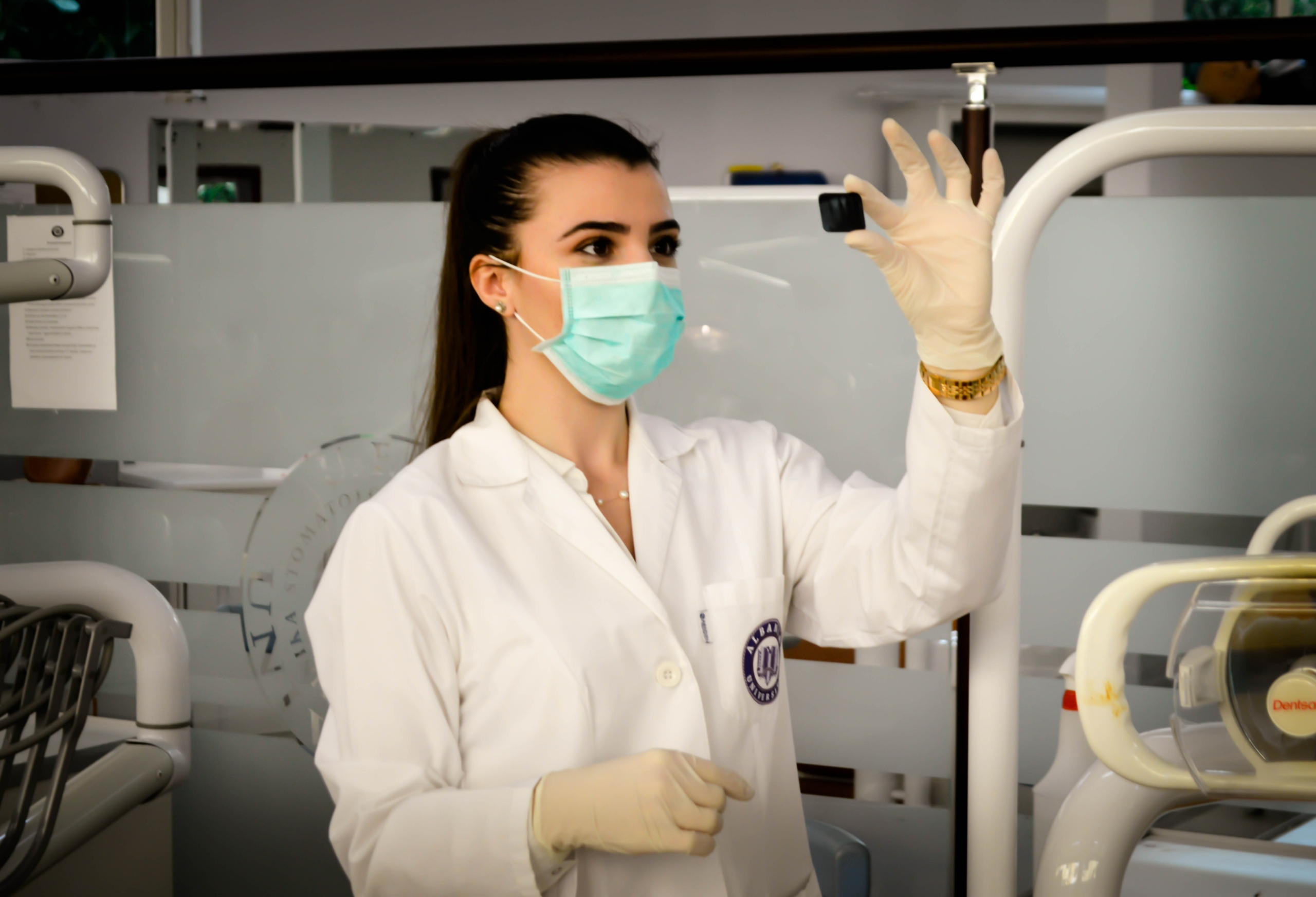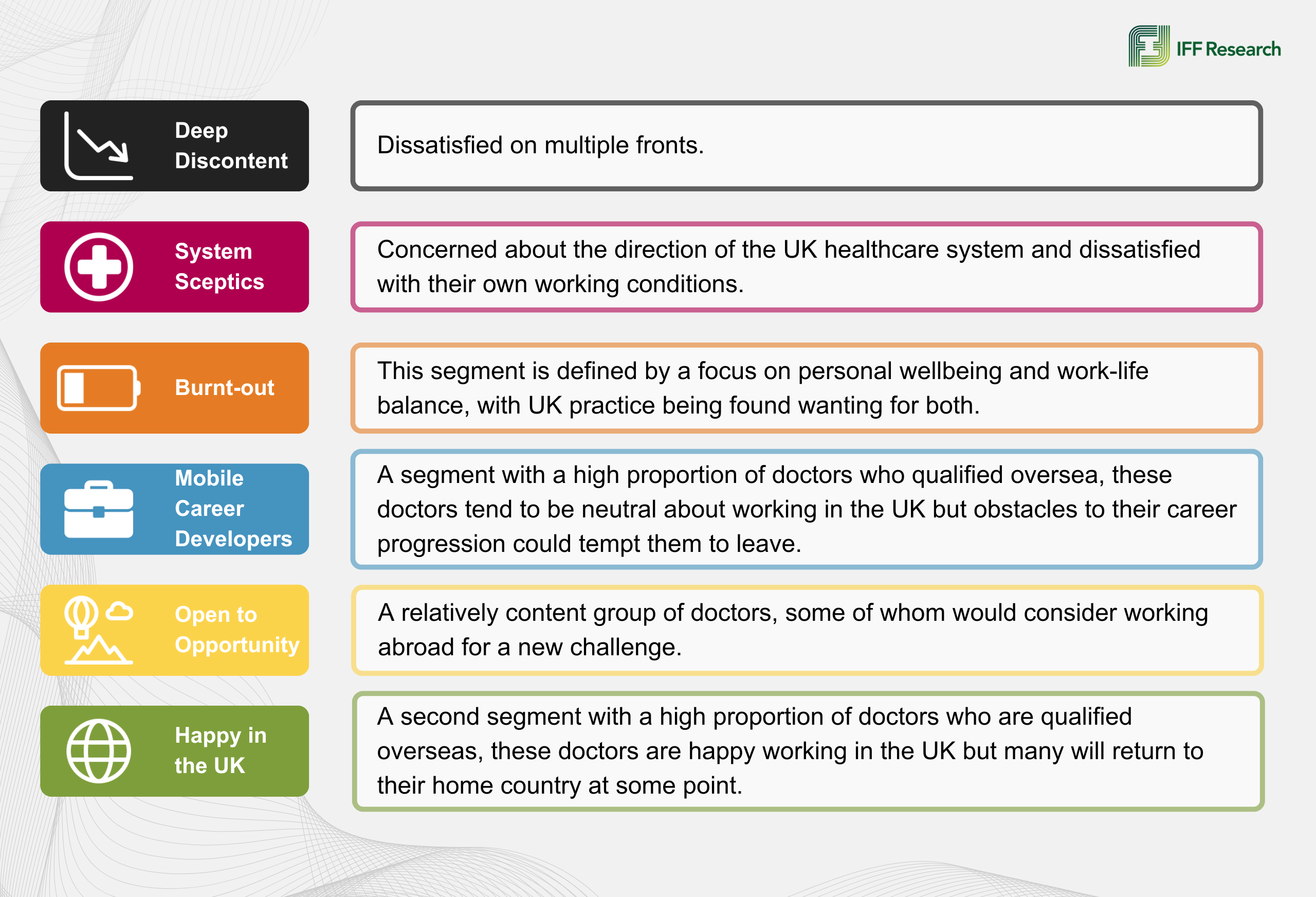At a glance
The General Medical Council (GMC) commissioned IFF Research to explore the migration behaviour of doctors to better understand their attitudes, motivations, and decision-making journeys. Ultimately, helping the UK’s health services to develop strategies that help improve workplace experiences and increase retention. The survey encompassed doctors currently practising in the UK, doctors who had left the UK and doctors who had returned to the UK after practising abroad; and employed a segmentation approach.
Finding that dissatisfaction with UK practice was a factor for many of those intending to leave the UK in the next 12 months and that those who returned to the UK did so mainly for personal or family reasons, it concluded that retention strategies should focus on improving working conditions and addressing career development obstacles to prevent doctors from leaving. The research garnered substantial national media attention, being featured on BBC News, The Times, and other outlets. Overall, the GMC’s engagement with stakeholders and the media has emphasised the importance of taking actionable steps to improve the UK’s competitive position in retaining doctors.
About the client
The General Medical Council (GMC) is the independent regulator of doctors in the UK. It works with doctors, patients, and other stakeholders to support good, safe patient care across the UK and oversees the education, registration, and licensing of doctors. As part of its corporate strategy, the GMC is committed to developing a sustainable medical workforce to meet the increasing healthcare needs of the population.
Challenges and objectives
In the context of ongoing shortages of medical professionals, and an increasing demand for healthcare services, this research aimed to identify different groups of doctors based on their attitudes and experiences towards UK practice, their migration intentions and the reasons why some doctors leave or may leave the UK to practise abroad.
Through understanding why doctors leave, or consider leaving, the UK and what motivates those who decide to return, it was hoped that strategies could be developed to encourage doctors to stay longer in the UK or return sooner after a period practising abroad.

Solution
We adopted an innovative approach to meet the GMC’s objectives. Initially, the project aimed to survey doctors who had already left the UK to practise abroad. However, the scope was broadened to include three groups: approximately 1,500 doctors currently practising in the UK, over 1,000 doctors who had left the UK between 2018 and 2022, and around 450 doctors who had returned to the UK after practising abroad during the same period. This comprehensive segmentation allowed for a more detailed understanding of the different attitudes and motivations driving migration behaviour among doctors.
The analysis identified six distinct groups of doctors based on their attitudes and experiences towards working in the UK, highlighted in the graphic.

“This project was required to deliver a robust sample, sensitively use a segmentation approach to group doctors in ways that made conceptual, as well as statistical sense, and deliver accessible and useful findings to a tight timetable to enable sharing at an international conference. The project met all our requirements and we have employed IFF for a follow-up study to explore doctors’ journeys in the opposite direction.”
Karen Roberts,
Research Manager, GMC
Impact
The findings revealed that over half of the doctors currently practising in the UK belong to the Deep Discontent, System Sceptics, and Burnt-out segments, indicating a high likelihood of leaving due to dissatisfaction. Conversely, most doctors who had already left the UK fell into the Mobile Career Developers and Happy in the UK segments, suggesting that pull factors abroad were a significant factor in their decision to leave. The research highlighted that 30% of doctors currently practising in the UK said they are likely to move abroad within the next 12 months, with younger doctors and those with non-UK qualifications being more inclined to say this. While there is a gap between intention and action – GMC data shows that far fewer doctors do actually go on to leave – the level of stated intent to do so can act as a ‘call for action’ to improve factors such as pay, working conditions and career opportunities for UK doctors.
The study also found that doctors who returned to the UK did so mainly for personal or family reasons rather than work-related factors. This insight suggests that retention strategies should focus more on improving working conditions and addressing career development obstacles to prevent doctors from leaving, rather than solely persuading them to return.
The research garnered substantial national media attention, being featured on BBC News, The Times, and other outlets. This coverage underscored the urgency of addressing the issues raised by the study. Stakeholders, including the British Medical Association and NHS Employers, responded to the findings, acknowledging the need for systemic improvements to retain doctors in the UK.
Overall, the GMC’s engagement with stakeholders and the media has emphasised the importance of taking actionable steps to improve the UK’s competitive position in retaining doctors. The research has provided the GMC with valuable insights that have been shared widely within their organisation, at national and international conferences and with their partners to raise awareness, influence discussions and highlight the critical areas for intervention to help develop a sustainable medical workforce in the UK.





